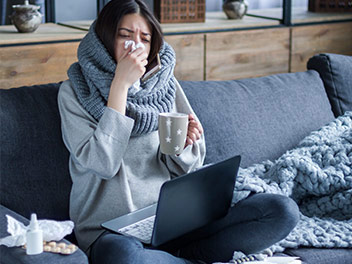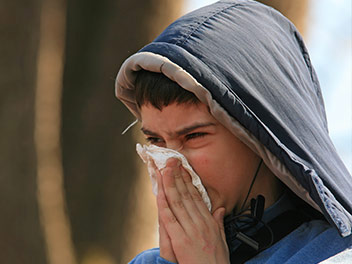

The Flu (Influenza)
The flu virus usually spreads through the air when a person who is infected sneezes, coughs, or talks. In the United States, flu season is from October to May. Getting a yearly flu vaccine is your family's best protection.
-

5 Ways to Fight the Flu
Follow these tips so you don't miss out on holiday and winter fun.
Here's what to do
-

Things to Know About the Flu
Find out how the flu spreads, what to do if you get it, where to get a flu vaccine, and more.
-

When Can I Go Back to School?
Staying home stops the flu from spreading and might help you recover faster.
Find out why
Preventing the Flu
Here's how to do your part to stop the flu from spreading. You'll stay healthy, and your friends and family will thank you for protecting them, too.

Hand Washing
With the flu and the coronavirus going around, hand washing matters more than ever.
Learn how to do it right

Getting a Flu Vaccine
Flu viruses are different every year, so your best protection is a yearly flu vaccine.
Find out more

Flu Vaccine Q&A
I hate getting shots, but I know I need them. Any advice?
I'm pregnant. Should I get a flu shot?
I'm allergic to eggs. Can I still get a flu vaccine?
How to Deal With Flu-Related Problems
The Flu and Other Health Conditions
-
Respiratory infections like the flu can trigger a flare-up and make asthma symptoms worse.
-
Being sick can affect blood sugar levels for people with diabetes. Taking a few precautions can help.






